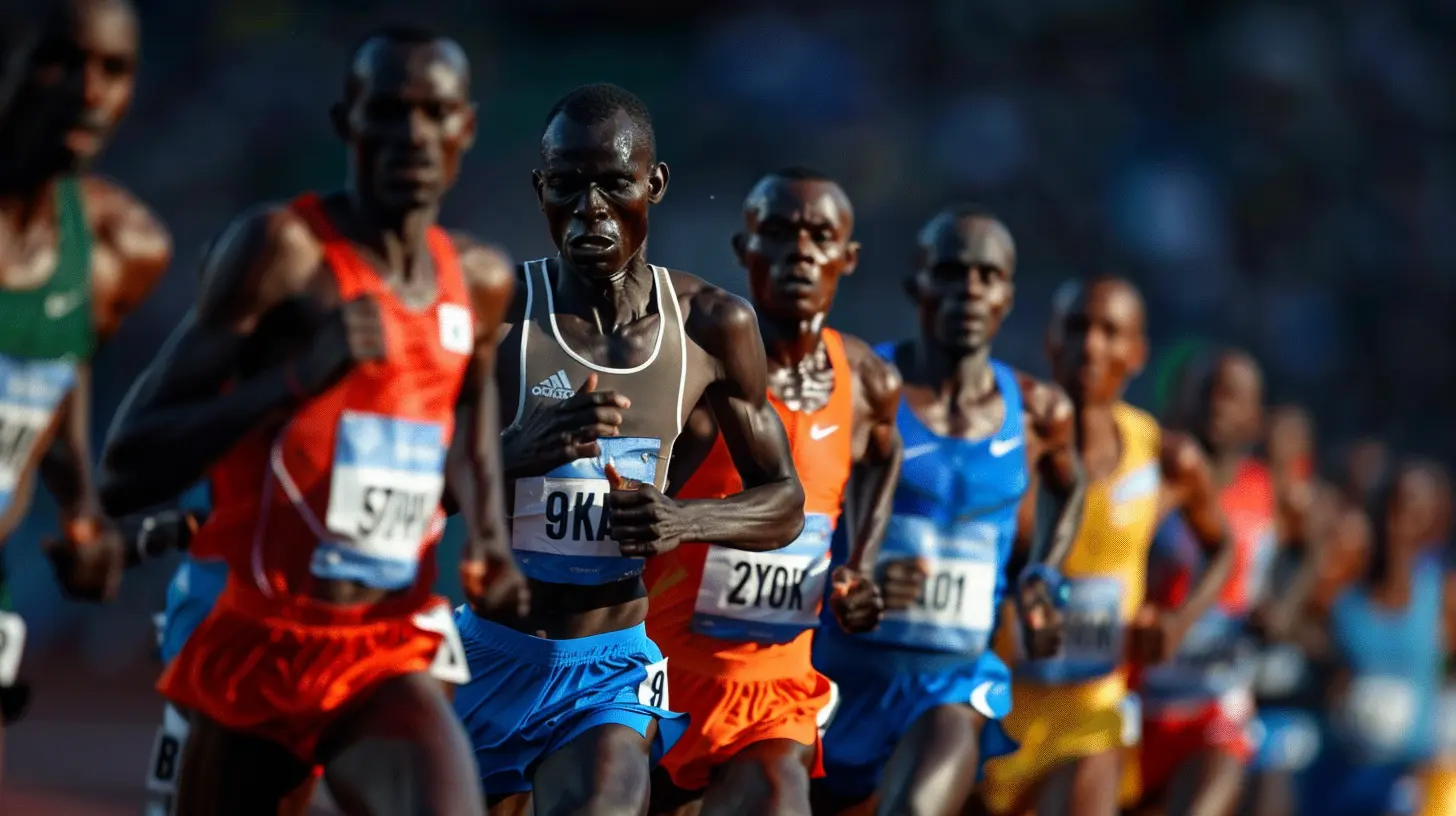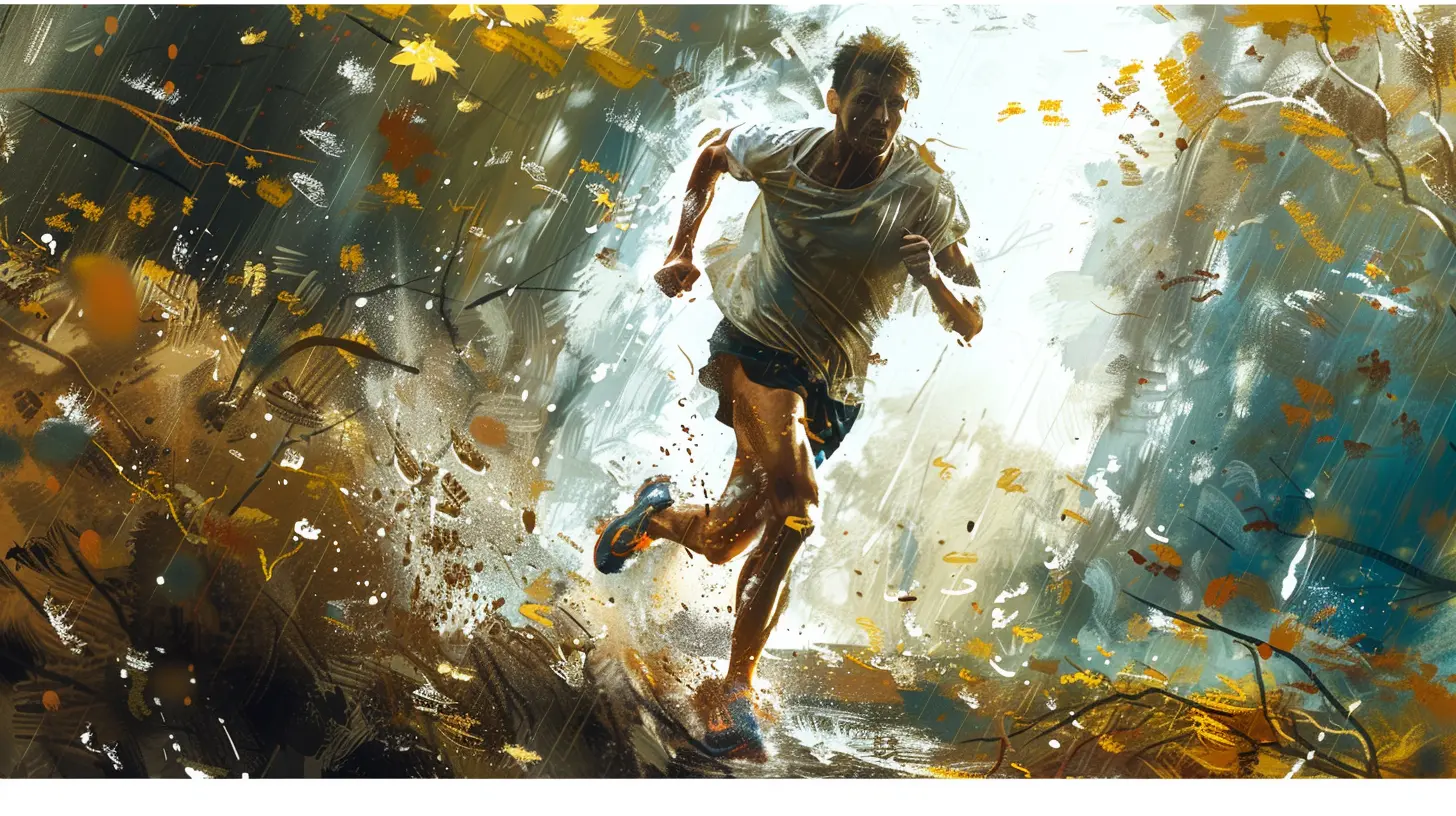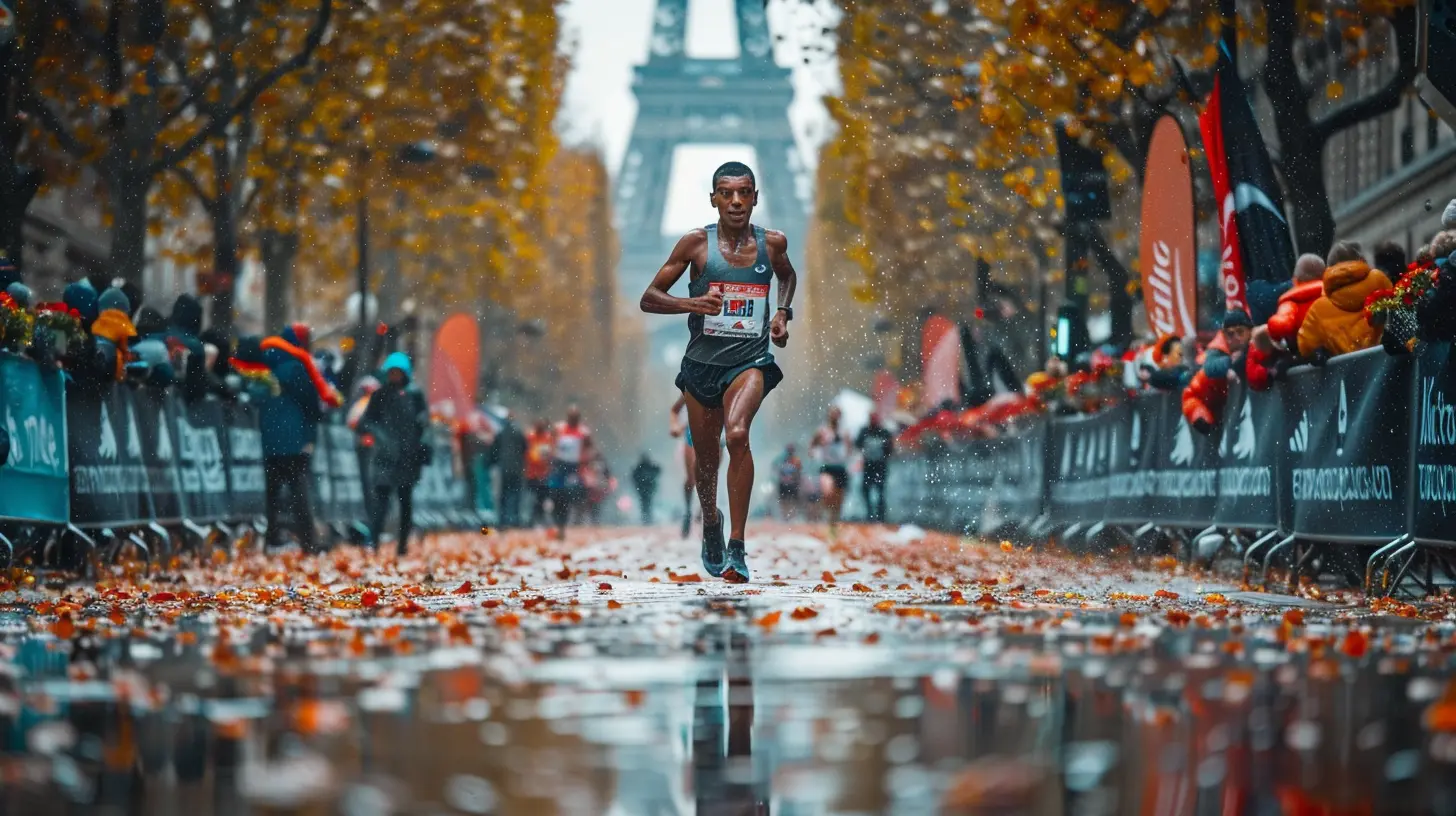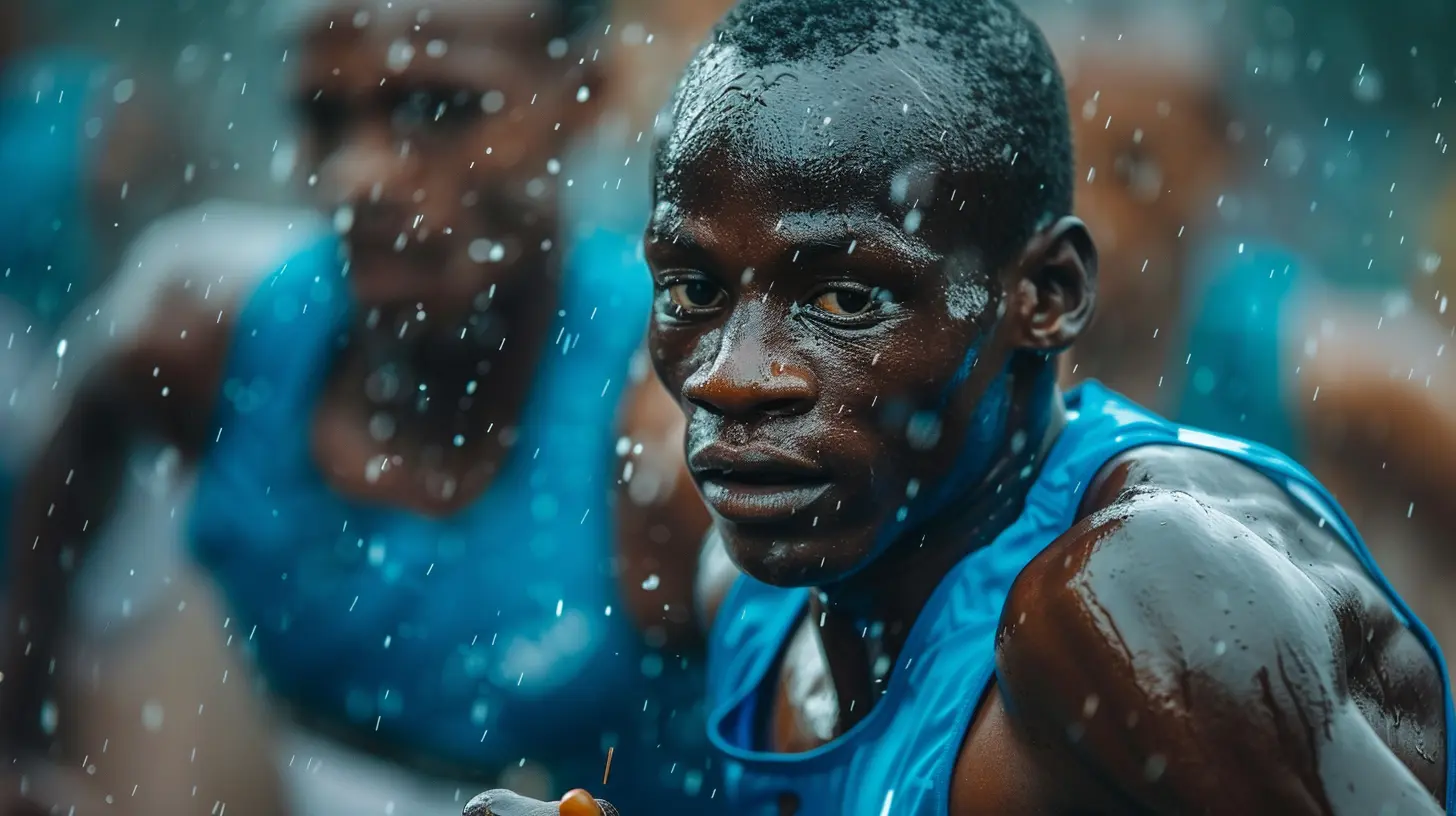How to Recover After a Running Race or Event
2 July 2025
So, you just crushed a race. Maybe it was your first 5K, a half marathon, or even a full marathon. You sprinted across that finish line, collected your medal, and took those victory photos—but now your legs feel like spaghetti, your feet are barking, and even sitting down seems like too much effort. Sound familiar?
Well, good news: this is all part of the process. Recovery is just as important as training when it comes to running. In fact, how you bounce back after a race can either set you up for your next personal best—or leave you nursing injuries and burnout. Let’s talk about how to truly recover after a running race or event so your body (and mind) can come back stronger.
Why Recovery Matters More Than You Think
First things first—why does recovery even matter that much? Can't you just take a couple of days off, stretch a little, and get back on the road?Well, not exactly.
Running events, whether short or long, take a toll on your body. Muscles break down, glycogen stores get zapped, and tiny tears in your tissues need time to repair. Your immune system also takes a hit, especially after long-distance races. Recovery isn’t just resting—it’s rebuilding.
Think of your body like an old-school analog watch. When it's ticking perfectly, everything is in sync. But if you push it too hard without taking care of the gears, it starts to skip beats. Recovery winds that watch back up.
Immediate Post-Race Actions (Within the First Hour)
Alright, you just crossed the finish line. You’re sweaty. You’re pumped. And you probably want to sit down and not move for a year. But hold on—those first 60 minutes after a race are crucial.1. Keep Moving (Yes, Really)
I know it sounds counterintuitive, but stopping cold is a no-go. Take a slow 10–15 minute walk—however sluggish your pace might be. This helps your heart rate return to normal gradually and keeps blood flowing, which aids in flushing out lactic acid build-up.Ever see elite runners walking around right after they're done? That’s why. It’s not for show—it’s science.
2. Hydrate Smart
Even if you were drinking during your race, your body still lost a ton of fluid and electrolytes. Water is great, but your body needs more than just that. Think of it like recharging your phone—you’ll need more than a weak cord to get back to 100%.Try an electrolyte drink or even some coconut water. Avoid booze for now—celebratory beers can wait till later (sorry!).
3. Grab a Snack
Refuel your body with a mix of protein and carbs within 30–60 minutes. This helps replenish glycogen stores and starts repairing muscle damage. A banana with peanut butter, a protein shake, or even a turkey sandwich can do the trick. You don’t need to overthink it—just get something in.
The First 24 Hours: TLC for Your Body
This is your window for light recovery—no intense workouts, no hill sprints. Your body is operating in repair mode, and you have one job: help it along.4. Stretch Gently
Static stretching gets a bad rap, but after a race, it’s actually beneficial. Target tight areas like your calves, hamstrings, and quads. Think of stretching like smoothing out the creases in a crumpled-up paper—each stretch helps you unfold a bit more.No need to get crazy with it. Just 10–15 minutes of gentle stretching can help reduce stiffness and keep muscles from seizing up.
5. Foam Rolling + Massage
This. Is. Magic.Foam rolling works out knots and improves circulation. It can be painful, especially right after a race, but it’s like sending your muscles a “thank you” card. For extra love, treat yourself to a sports massage if you can swing it financially.
Tip: Don’t hammer sore spots. Be gentle, controlled, and consistent.
6. Prioritize Sleep Like a Pro
Sleep is free, powerful, and often overlooked. While you snooze, your body works overtime to restore what got used up during the race. Aim for a full 7–9 hours, and if your schedule allows, sneak in a nap the day after the race. You earned it.
The First Week: Active Recovery
Alright, now we’re moving into recovery with a small "r"—meaning you can start being a little more active, but it’s not all systems go just yet.7. Do Light Cross-Training
Swimming, biking, yoga, or even a brisk walk can help you stay limber without putting the same stress on your joints that running does. This is like taking a scenic detour instead of jumping right back on the highway.Stay in zone 1 (easy breathing, low heart rate) and keep it fun.
8. Watch for Lingering Pain
Soreness is normal. Sharp pain? Not so much.Start paying attention to how your body feels, especially around joints. If something still hurts consistently after 4–5 days—or if it’s worsening—don’t tough it out. Get it checked out. Running through pain isn’t brave; it’s risky.
Nutrition for Recovery: Food Is Your Friend
Most runners are so focused on pre-race carbs that they forget what happens afterward matters just as much (maybe more).9. Eat the Rainbow
Colorful veggies, whole grains, lean proteins, and healthy fats should fill your plate. Vitamins and minerals—especially magnesium, zinc, and potassium—play a major role in muscle recovery and energy regeneration.If food were a repair crew, you want all hands on deck.
10. Don’t Skip Meals
Your metabolism stays elevated for a while after a tough race. This isn’t the time to cut calories. Think of food as fuel and restoration, not as a reward you “burned.”Got cravings? Listen to them. Just aim for balance.
Mental Recovery: The Hidden Ingredient
Physical recovery gets all the attention, but let’s not ignore your brain.11. Reflect on Your Race
Take a few minutes—or even a day—to journal your thoughts. How did you feel during the race? What went well? What would you do differently next time?Whether it was your best performance or a tough slog, there’s value in documenting it. Think of it as a post-game report.
12. Manage the “Post-Race Blues”
It’s real. You’ve been training for months with one big date circled on your calendar, and now—it’s over. It’s common to feel a little lost after a major race.Here’s the trick: set your sights on what's next. No, not another race right away. Maybe it’s a new training goal, a recovery month, or simply exploring other fun ways to stay active.
When to Start Running Again
Here comes the golden question: when can you actually lace up and run again?13. Follow the “Race Distance = Rest Days” Rule
This rule isn’t set in stone, but it’s a good guideline:- 5K: Rest or very light activity for 1–2 days
- 10K: Take 3–4 easy days
- Half Marathon: Allow at least 5–7 days
- Marathon: Rest for 10–14 days before resuming structured training
You don’t have to go completely sedentary, but this is about easing in—not blasting sprints on day three.
Signs You’re Recovered and Ready to Train Again
So how do you know your body’s truly bounced back?- No persistent soreness
- Sleep is back to normal
- You feel mentally motivated
- Easy runs feel easy again
- Resting heart rate is back to baseline
If all those boxes are checked, green light! Start with short, easy runs and gradually rebuild your mileage. Don’t rush. Patience in recovery always pays off in the long run (pun intended).
Conclusion: Recovery Isn’t Lazy—It’s Smart
Taking time to recover after a running race or event isn’t a luxury. It’s a necessity.It doesn’t mean putting your feet up forever—it means listening to your body, treating it with care, and giving it what it needs to get stronger. Without recovery, there’s no progress. It’s the exhale to every training inhale. And trust me—the better you recover, the better you’ll run next time.
Now go ahead and schedule that nap. You’ve earned it.
all images in this post were generated using AI tools
Category:
RunningAuthor:

Frankie Bailey
Discussion
rate this article
1 comments
Kairo Gonzalez
Recovering after a race is just as crucial as the training leading up to it! Embrace this time to rest, refuel, and reflect on your accomplishments. Remember, every step you take in recovery prepares you for even greater achievements ahead. Keep pushing forward! 🏃♂️✨
July 15, 2025 at 5:05 AM

Frankie Bailey
Absolutely! Recovery is essential to ensure your body heals and prepares for future challenges. Take the time to rest and reflect—it's all part of the journey!


